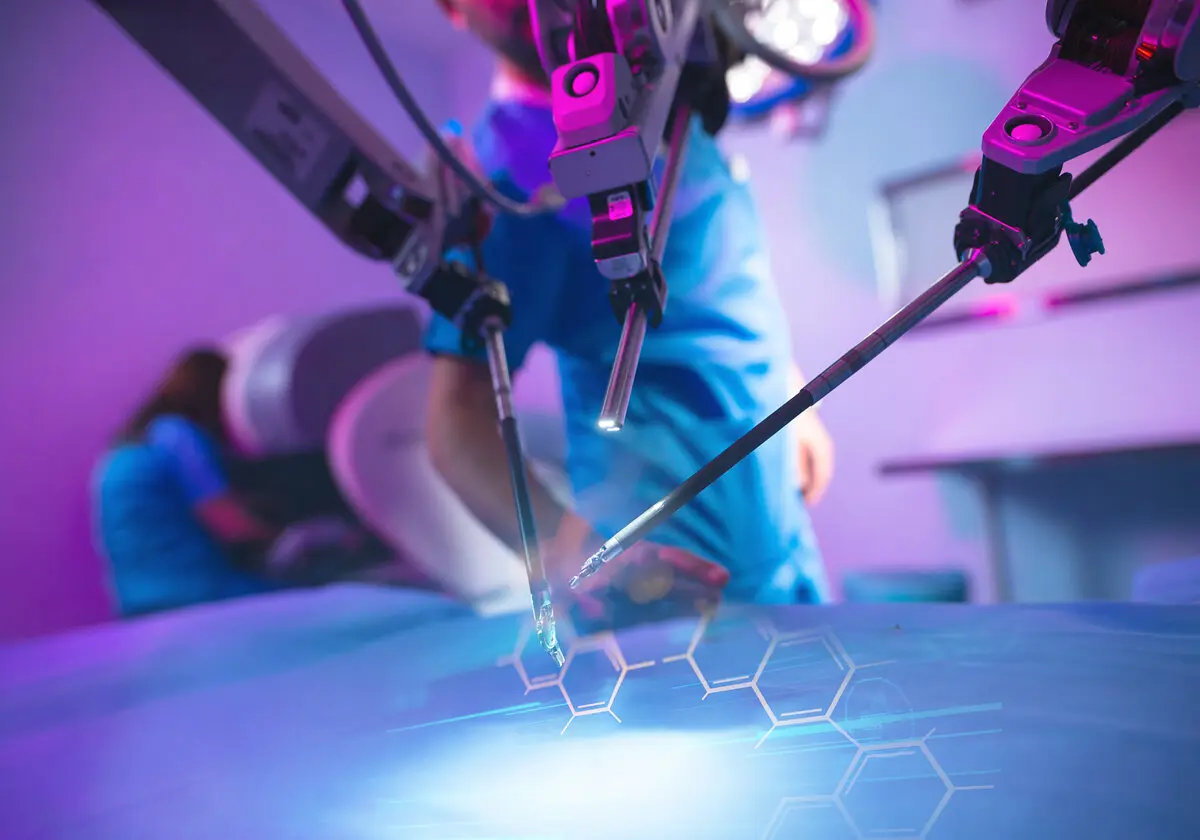Improving 3d bone models for orthopaedic surgery using machine learning
Project overview
Meshworks builds orthopaedic implants and plans surgeries, needing a faster and more efficient solution for creating 3D bone models. The traditional manual process was time-consuming and required significant effort. Deeper Insights conducted an exploratory analysis and tested several machine learning approaches, to provide a path to a more accurate bone segmentation process. This project laid the groundwork for further research and development of automated bone segmentation and optimised workflows in the orthopaedic industry.












The challenge
Meshworks (part of Alloyed Ltd) produces orthopaedic implants and plans podiatric surgeries in 3D space using bone models. The traditional method of creating these 3D bone models is a manual process that is time-consuming and often causes delays in production. 3D CT images can contain up to 500 slices, which have to be manually annotated by a person. The annotation of a 3D CT image can take up to 3 hours to complete and is a barrier to efficient production. Meshworks required a comprehensive exploration of various options to enhance their efficiency in bone model creation. Moreover, Meshworks also wanted to gain expertise on requirements and good practices for developing ML approaches for image segmentation.
The solution
Deeper Insights used their powerful Deeper Vision platform for rapid training of open-source computer vision models, using our Experiment Tracker to run many simultaneous experiments to identify the best model for this particular segmentation task. After understanding the process, they performed a literature review on potential approaches applicable to the Meshworks problem, including global and adaptive thresholding, 3D UNet/VNet, ToothNet, and PlantSeg, among others. In the end, 3D and 2D deep-learning segmentation models were selected and fine-tuned using the Meshworks dataset. Deeper Insights then tested each method to determine the most suitable approach for Meshworks' needs, providing a comparative analysis of the different approaches in a final report.


The end result
Deeper Insights supported Meshworks in exploring various approaches to automate the bone segmentation process, resulting in methods that could produce faster and more efficient bone model creation. The company now has a better understanding of the vast options and benefits of using machine learning for automated bone segmentation. The exploratory approach taken by Deeper Insights allowed Meshworks to make an informed decision on the best approach for implementing machine learning automation into their processes, which will ultimately reduce manual work. The project laid the groundwork for further research and development of automated bone segmentation in the orthopaedic industry, potentially enabling better bone segmentation and reducing manual work.
Dr. Umar Hossain, Senior Design Engineer
Next steps
A variety of technologies and techniques were utilised in the development of this application. To gain a further understanding of the technology and services offered by Deeper Insights, please inquire for more information or visit our services page.
















